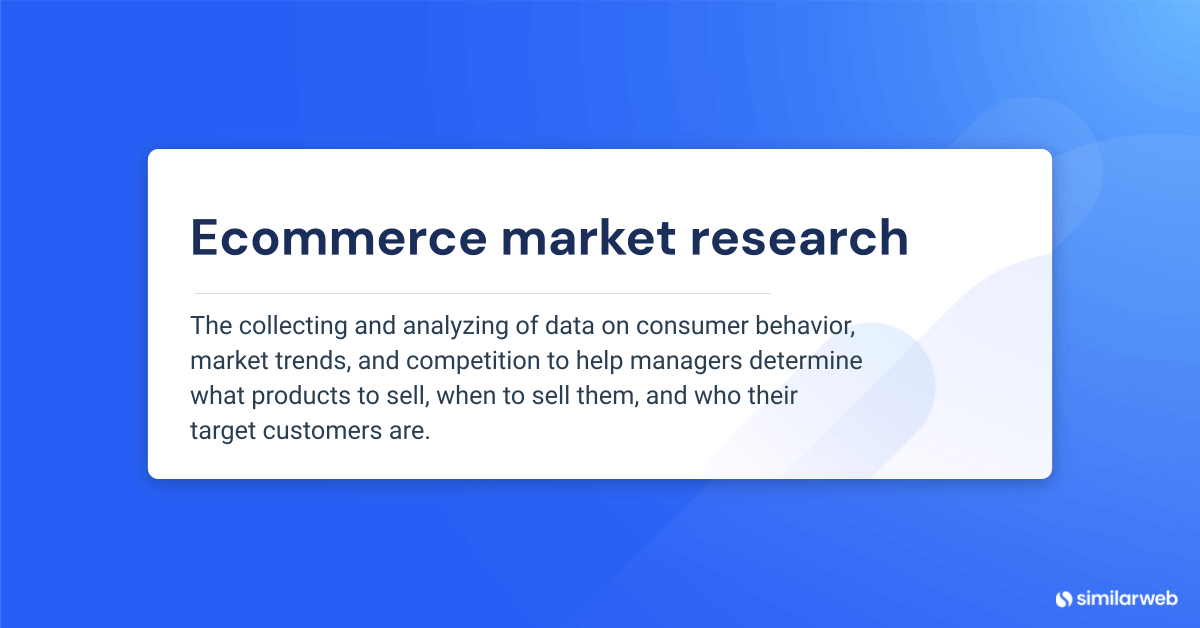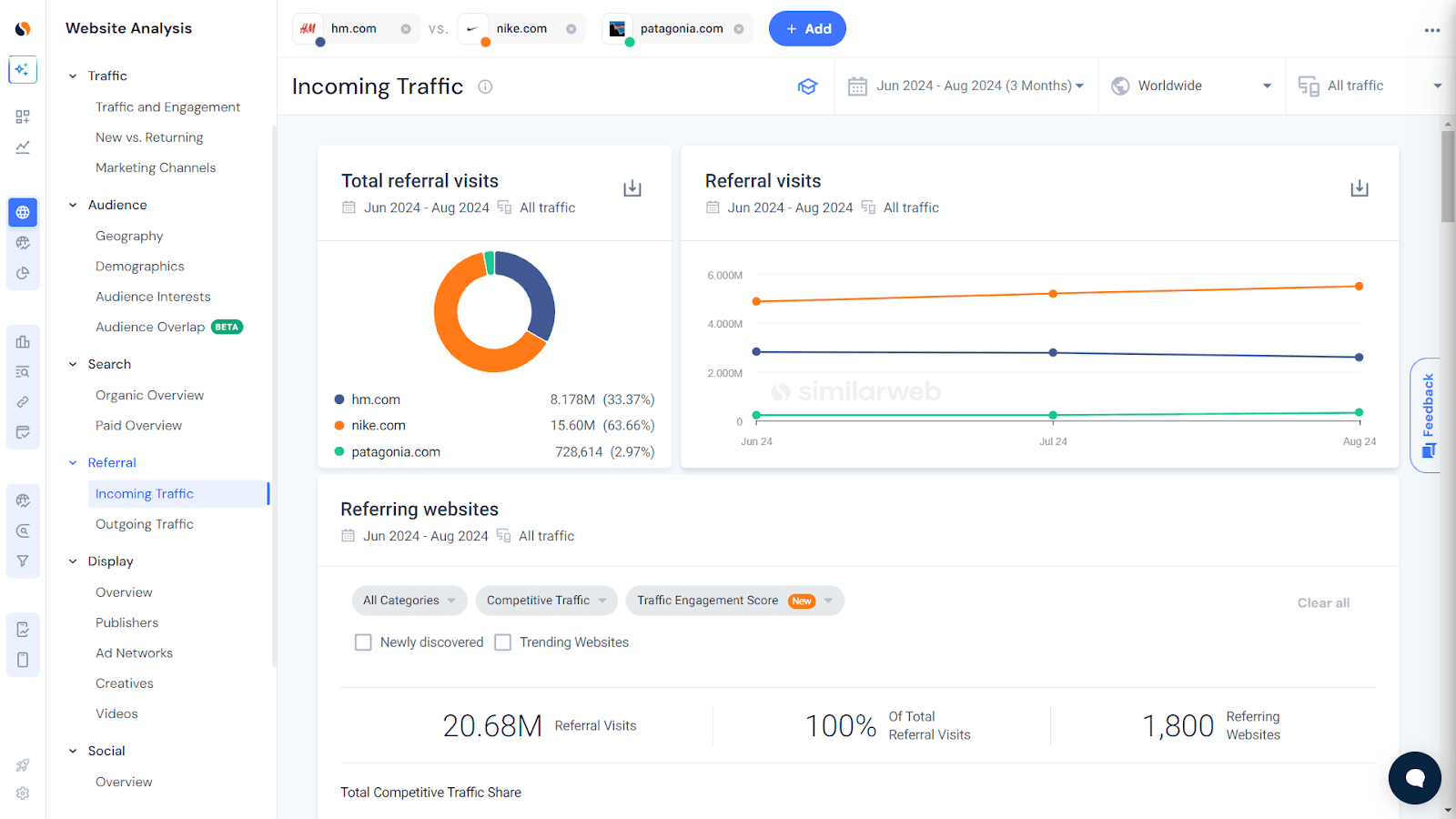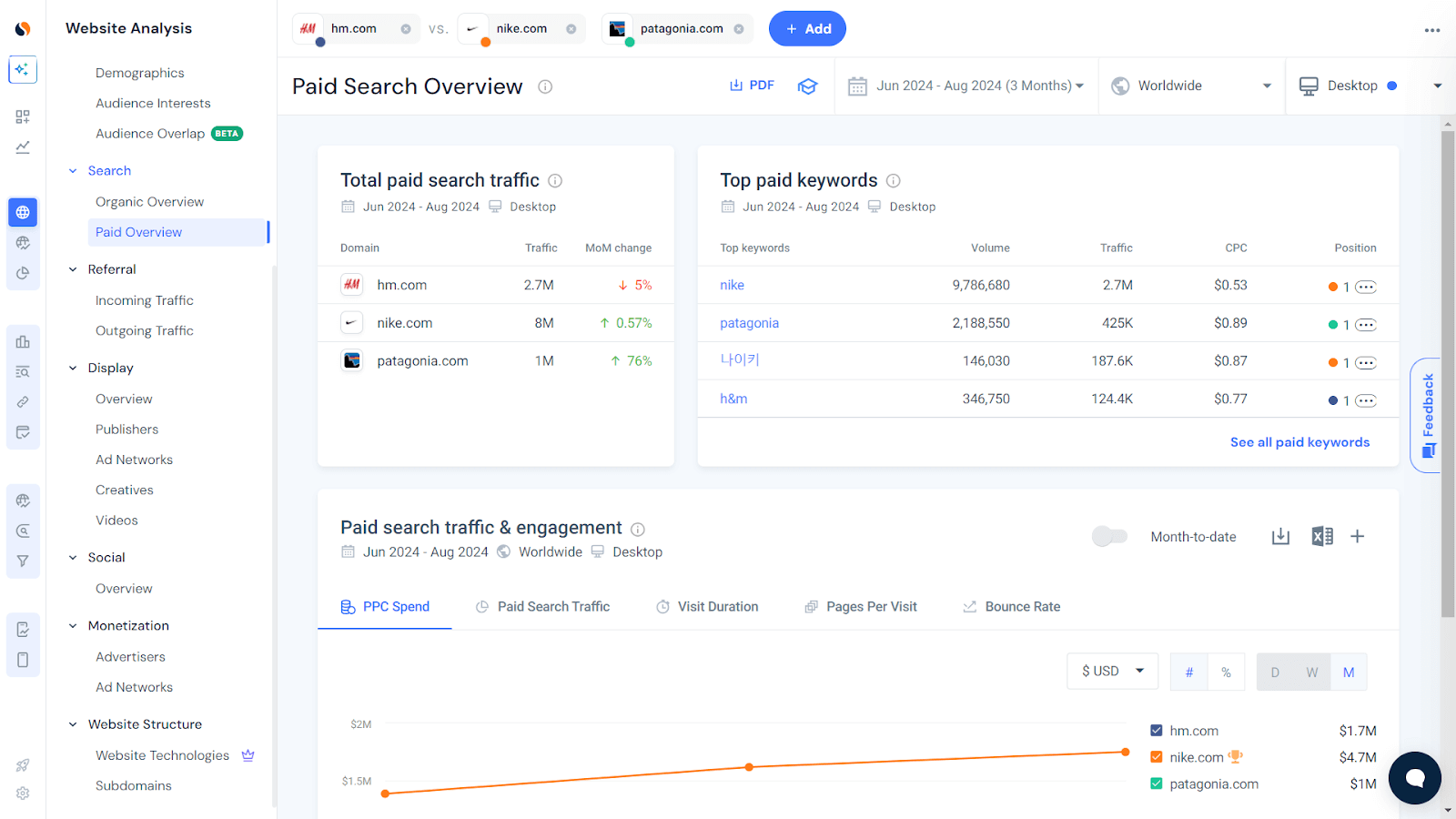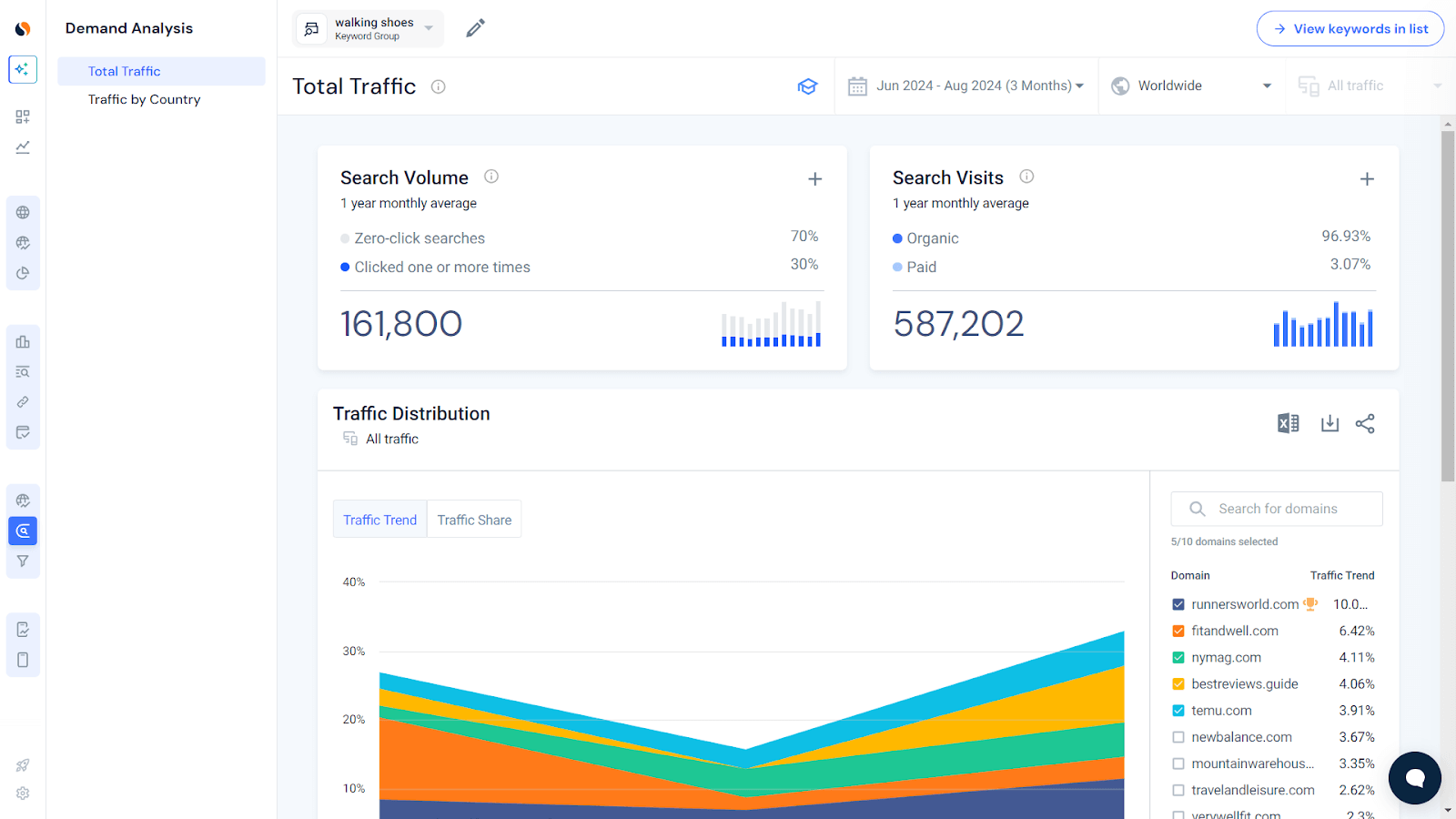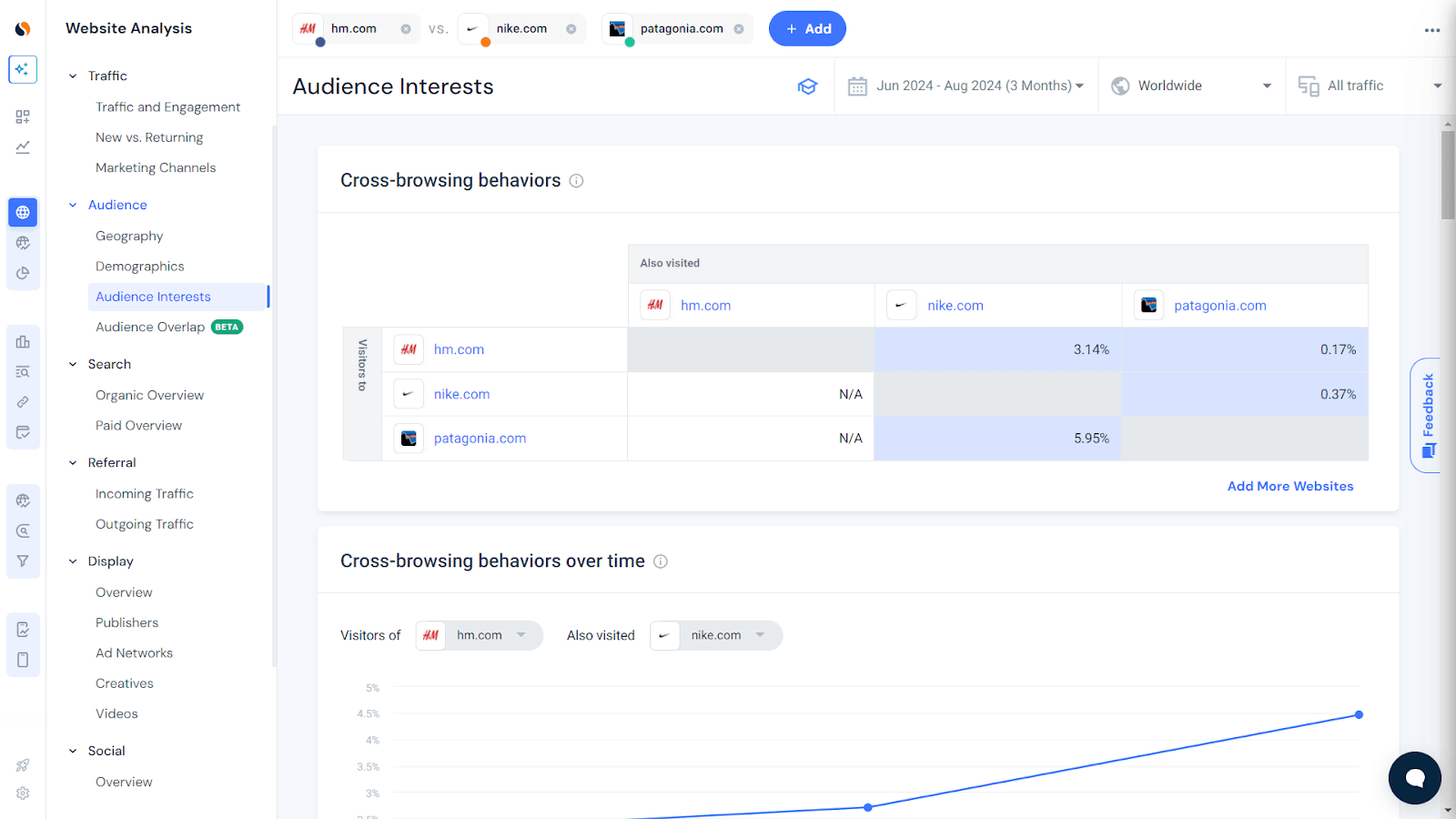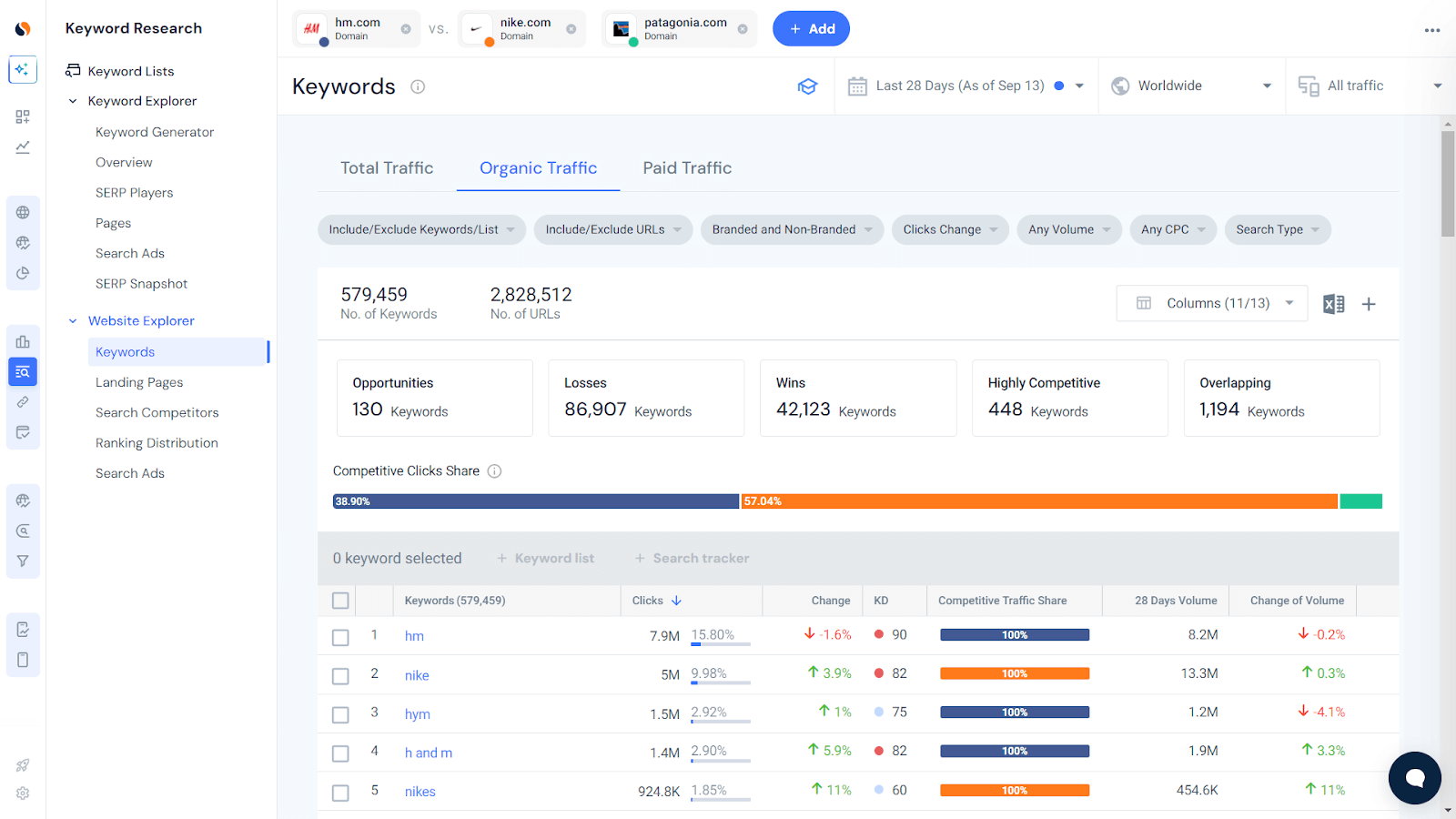Ecommerce Market Research: Your Secret Weapon for Online Success

Thinking about launching an ecommerce business? It’s an exciting venture, but don’t let the glitter of online sales blind you to the challenges ahead.
That’s where ecommerce market research comes into play! By digging into the data, you can uncover insights that transform your business strategy from guesswork to gold.
With accurate data at your fingertips, you’ll craft strategies that boost performance, minimize risks, and help you stand out in a crowded marketplace.
Consider this: Shopify predicts that global ecommerce sales will soar to a staggering $6.33 trillion in 2024 and reach nearly $8 trillion by 2027. Impressive, right? But jumping into this booming market without proper research is a recipe for disaster. You could easily miss golden opportunities or, worse, get caught flat-footed. That’s why diving into ecommerce market research is not just smart – it’s essential!
What is ecommerce market research?
Ecommerce market research is focused on collecting and analyzing data that reveals information about consumer behavior, online market trends and the competitive landscape to help managers understand what products to sell, when to sell them, and to whom to sell.
For example, understanding sales seasonality can improve stock management and marketing strategies by ensuring popular items are available when customers want them most. Using ecommerce market research tools like analytics platforms turns raw data into actionable strategies.
To stay ahead of customer demands and outpace competitors, businesses must invest time and resources in market research. This is crucial for online success, as it enables smarter decision-making based on solid data rather than gut feelings. With these insights, companies can refine their offerings, connect better with their target audience, and ultimately boost their success in the ecommerce landscape.
5 strategies to research ecommerce businesses
Research is crucial for analyzing the ecommerce industry, and if you’re aiming for success, thoroughness is essential. Here are five strategies you can implement in your ecommerce business to grasp your market better and make data-driven decisions. Each strategy holds its own importance, and when combined, they create a clear picture of the landscape in your industry:
Competitive analysis
Competitive analysis involves examining your rivals’ strengths, weaknesses, and strategies. By understanding what they do well and where they fall short, you can set performance benchmarks for your own ecommerce business and spot areas ripe for improvement.
To gain deeper insights into your competitors, leverage tools that analyze traffic sources, audience behavior, and engagement metrics.
With its competitive analysis features, Similarweb offers valuable insights into your competitors’ traffic sources, allowing you to benchmark your performance against theirs. You can pinpoint specific areas to capture market share and gather crucial data on their marketing campaigns, product offerings, and targeting strategies. These insights can guide your strategic planning and help you refine your approach to customer engagement.
Marketing strategy
In a crowded marketplace where countless businesses compete for customers, savvy marketers understand that standing out requires a deep dive into the competition. By using Similarweb to monitor the marketing activities of your toughest rivals, you’ll uncover valuable insights that can sharpen your strategy and boost your sales and marketing efforts.
With Similarweb, you can track competitor campaigns to see which channels are driving the most traffic and conversions for them. You can also review their ad copies and dive into their messaging strategies, as well as explore their ecommerce PPC spending.
Market and industry trends
To spot new growth opportunities and stay ahead of the competition, it’s essential to keep your finger on the pulse of the ever-evolving market and its players. Staying attuned to consumer trends can also guide your product development and inventory management.
For example, you may notice a surge in demand for certain products while others fall out of favor, which can help shape your product lineup and refine your marketing strategies.
Similarweb’s Demand Analysis tracks real-time search fluctuations and market demand, helping businesses navigate the ups and downs of trends. It provides insights into future opportunities and guides resource allocation, enabling you to make informed decisions about where to focus your efforts.
Audience research
Understanding your audience is crucial for developing products and messaging that genuinely connect. Audience research dives into your target demographics, uncovering their interests and behaviors. By analyzing how users engage with your site and your competitors’ sites, you gain valuable insights that inform your strategies and enhance user experience.
With Similarweb, you can analyze demographics, engagement levels, and interests to fine-tune your offerings for specific audience segments. You can also leverage engagement metrics to see how audiences interact with your content and products across various channels.
These insights empower you to craft marketing strategies that deliver the right message to the right audience in the most effective way.
Keyword research
Keyword research is essential for refining your search engine optimization (SEO) and pay-per-click (PPC) strategies. By identifying the terms potential customers use to search for products like yours, you can incorporate those keywords into your campaigns to enhance visibility and drive more traffic to your site.
The Keyword Analysis feature in Similarweb helps you pinpoint popular and powerful keywords while tracking their trends over time. This insight allows you to uncover hot keywords for both your paid and organic search campaigns, enabling you to refine your ecommerce SEO and SEM strategies to boost campaign performance.
Achieve ecommerce success with informed decisions
Launching a successful ecommerce business hinges on comprehensive market research. By leveraging the tools we’ve discussed, you can conduct essential research, make informed decisions, and gain a competitive edge. With Similarweb’s extensive suite of tools at your disposal, you have everything you need to formulate the right strategy. Are you ready to take the plunge?
Get started with Similarweb today!
FAQs
How can I conduct an effective competitive analysis for my ecommerce business?
A good competitive analysis will look at where your competitors are getting traffic from, what their audience is doing and how they are engaging with the site. Tools such as Similarweb give you access to a wide range of information regarding your competitors. You can compare the KPIs of your site with those of your competitors so that you’re always one step ahead.
Why is it beneficial to stay updated with market and industry trends?
Monitoring market and industry trends can help identify areas of growth and position your business to outpace competitors. Studying consumer trends will allow you to make smarter decisions about product development, inventory and marketing, in a way that will allow your business to respond more swiftly to consumer preferences than your competitors can.
How does audience research contribute to ecommerce success?
Audience research allows you to find out how old or where potential customers are, what interests them and what purchase behaviors they can exhibit. This allows you to develop a targeted marketing strategy, find out their needs, and adapt your respective offerings to customer interests and optimize your conversion rate and customer satisfaction.
What are some key metrics to track in ecommerce market research?
Key metrics include website traffic figures, conversion rates, customer acquisition costs, average order value and customer lifetime value, and how these change over the lifecycle of a customer. By understanding and analyzing such ecommerce metrics, marketers should be able to gauge whether their marketing efforts are efficient and effective, and how their business is doing overall.
How often should ecommerce companies conduct market research?
Market research must be conducted on a regular basis in order to stay up to date with developing trends and consumer habits. Quarterly (or six month) research will allow a business to remain in the market forefront and alter their strategy as necessity dictates.
Track your digital metrics and grow market share
Contact us to set up a call with a market research specialist
